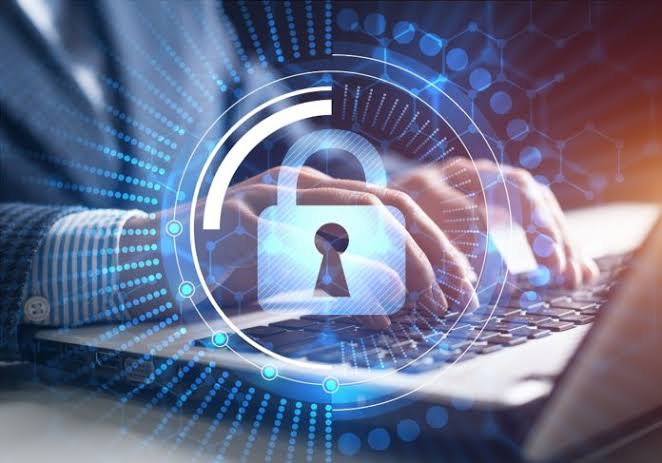How To Work From Home Securely

Many companies are now asking their workers to work from home after experiencing its positive sides. However, unlike in the office where your online security is largely taken care of by the company, the responsibility is more up to you at your home office.
There are many online security concerns with working from home, and it is merely stating the obvious to say that it is a must to know how to work from home securely.
These tips will help:
1. Be Cautious When Sharing Your Screen
When sharing your screen, be careful with the kind of information revealed to the other party in the meeting. If possible, avoid leaving any windows you do not want to share openly. It will be safe this way to prevent accidental sharing of private information.
Also, pick a good workspace when working at a library or coffee shop. Consider an area where it would be difficult to over your shoulder to see what is happening on your screen. Take note of doors and windows where strangers could peer in to steal sensitive information from your screen.
2. Secure Your Privacy Online With A VPN
Studies have shown that cybercrime damage caused by a lack of secure connections is around $1.5 billion per year. This figure will continue to rise as hackers devise new ways to exploit the private internet of remote workers to access sensitive information.
If you use a private computer for remote work, always secure your connection and encrypt your data with a VPN. There are a few proven VPN solutions for businesses to consider to heighten the security of public Wi-Fi networks.
Aside from reducing the risks of online attacks, such as MITM attacks, VPNs will also help make it hard for websites to find your real location.
3. Beware Of Phishing Scams
Phishing scams are targeted at stealing sensitive information from internet users. They can come in the form of emails with suspicious links or attachments. If you have access to a tool that can help report phishing, use it always or do not open or click on links from untrusted sources.
Phishing attacks are becoming increasingly sophisticated. Some of the dangers it can cause to a victim include putting your personal information, systems, and financial data at risk.
If you mistakenly clicked on any suspicious link, there are some things you can still quickly do to salvage the situation:
- Change your password instantly if it has been leaked.
- Open your antivirus software and run a full system scan. Ensure to adhere to all instructions given.
- Talk to the IT department of your company to find out what to do.
4. Update Your Software And Systems
You can reduce the risk of insecurity by keeping your devices updated often. Most modern devices will update by default, but you might be required to restart your computer to complete the process.
Aside from reducing your vulnerability on the internet, updating your software and systems helps fix bugs and crashes and ensures compatibility with other updated technologies you are using.
5. Physically Secure Your Home Office
That you work from home does not rule out that your home office needs to be physically on lock and key when you close for the day — just the same way it applied to your usual office. Your laptop or any work equipment can be stolen through your living room or backyard.
Do not become too relaxed with the fact that you now work remotely. Sensitive information about your business or finances could leak when they are not physically secured.
6. Separate Home Devices From Work
Do not download personal apps on your work devices. While this may require some extra costs and discipline, it increases the possibility of working from home securely.
It may also be hard to know which of your devices have been compromised. Try to extend the culture to your mobile devices too. You’ll ultimately be able to reduce the amount of sensitive data that can be leaked out if your device has been compromised.
7. Use A Strong Password On Your Devices
Many other security measures will be useless if your devices are not passworded or have weak passwords. In fact, avoid anything that’s easy to memorize, such as repeated figures or words or codes that are easy to guess. For instance, abstain from passwords like 000000, 12345, or 54321.
In addition, avoid anything related to your name, birth date, or address. A good password or pin should be difficult for any random person to guess. Pay attention to your WI-FI, too, and secure it with a good password.
8. Make Use Of An Antivirus Software
Antivirus software can be very helpful in ensuring your remote work is secured. This program works against viruses, Trojans, ransomware, spyware, rootkits, and other kinds of malware. It detects viruses and removes them. More importantly, this antivirus software help to prevent future attacks from any malware.
9. Encrypt Your Devices
Encryption is the process of encoding information to only be accessible by authorized parties. If encryption hasn’t been turned on already by your employer, you should consider preventing access to the contents on your device by doing so.
Though this process may not prevent interference or certain attacks, it will deny intelligible content leak to an interceptor.
10. Erase Any Information On Your Device Before Selling
A quick safety measure you must consider before selling your device is to restore factory settings. This should also apply if you were disposing of or giving out your devices. There may be some of your personal information still in the device, which may become accessible by the new user. However, ensure to back up very important data before erasing your data on any device.
Conclusion
Enabling ‘Find My Device’ will also help secure your data when your device gets lost or stolen. And wiping out your data via ‘Remote Wipe’ will also make it more difficult for any potential hacker to gain access to your data. Prioritize these methods needed to work from home securely, and you’ll never need to worry about your data being compromised when doing business online.



